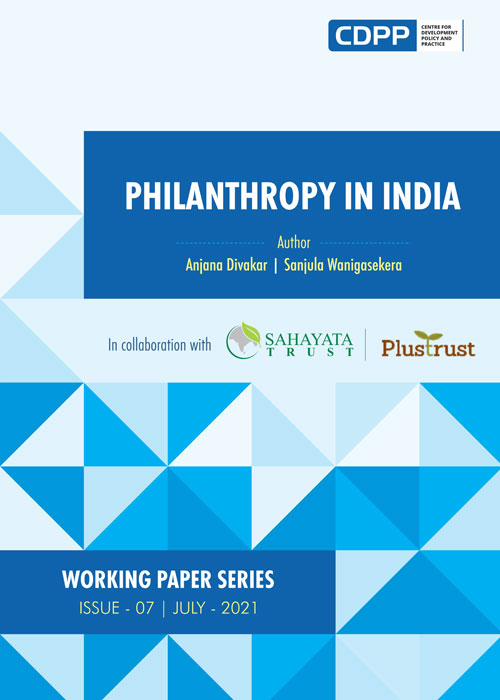
Philanthropy in India is as old as India itself. It originates from religions that have practiced giving for the longest time. This working paper investigates individual philanthropy, and corporate Philanthropy, the trends of both of them and regulatory changes in India. The specific regulations looked at are the refusal of Foreign Aid, the Foreign Contributions (Regulations) Act, Section 135 of the Companies Act 2013, Income Tax Act 1961, the Trusts Act 1882, and the amendments that have been made to them. The paper uses mainly secondary data such as research papers, articles and reports and accompanies the text with primary data from the talk series at CDPP "Philanthropy in India". The results found was that individual giving and corporate philanthropy have been increasing. For both, the most common cause for philanthropic donations were related to religious purposes, education and healthcare. The regulatory changes restrictive in the case of FCRA, while for the others, there were both benefits and limitations. The next step is to look to the future, investigate what lies ahead for Philanthropy in India after the pandemic and the recent regulatory changes reaching out to the grassroots while looking for ways to improve philanthropy's efficiency and efficacy.
Philanthropy, India, Trends, Regulatory Changes, Future Prospects
